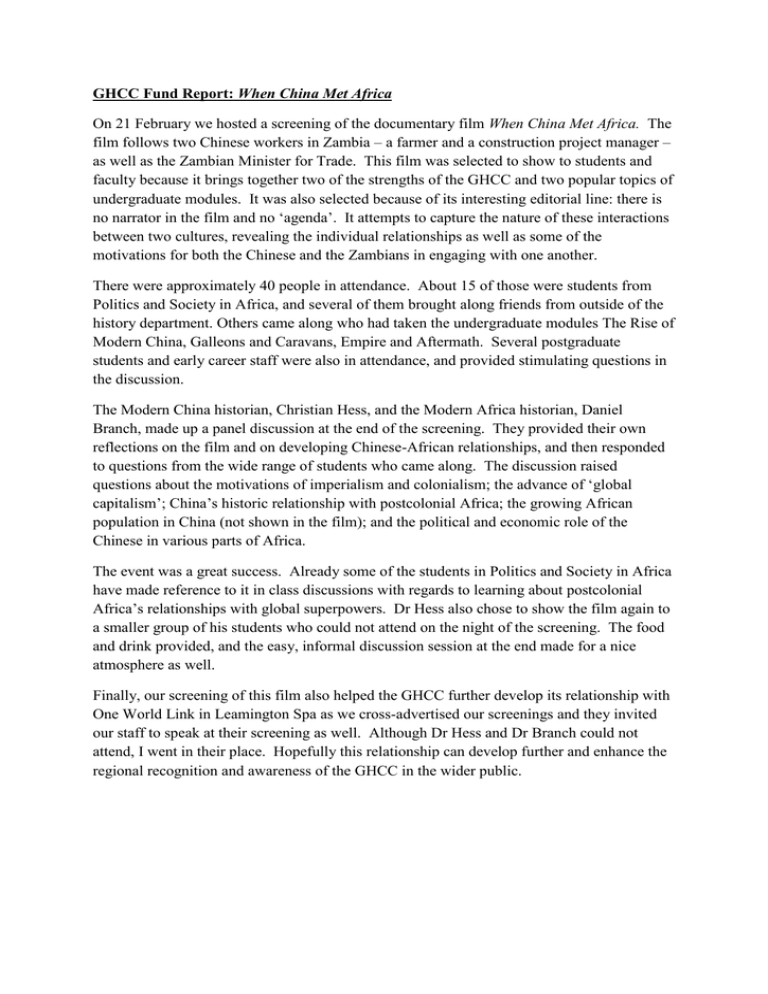When China Met Africa When China Met Africa.
advertisement

GHCC Fund Report: When China Met Africa On 21 February we hosted a screening of the documentary film When China Met Africa. The film follows two Chinese workers in Zambia – a farmer and a construction project manager – as well as the Zambian Minister for Trade. This film was selected to show to students and faculty because it brings together two of the strengths of the GHCC and two popular topics of undergraduate modules. It was also selected because of its interesting editorial line: there is no narrator in the film and no ‘agenda’. It attempts to capture the nature of these interactions between two cultures, revealing the individual relationships as well as some of the motivations for both the Chinese and the Zambians in engaging with one another. There were approximately 40 people in attendance. About 15 of those were students from Politics and Society in Africa, and several of them brought along friends from outside of the history department. Others came along who had taken the undergraduate modules The Rise of Modern China, Galleons and Caravans, Empire and Aftermath. Several postgraduate students and early career staff were also in attendance, and provided stimulating questions in the discussion. The Modern China historian, Christian Hess, and the Modern Africa historian, Daniel Branch, made up a panel discussion at the end of the screening. They provided their own reflections on the film and on developing Chinese-African relationships, and then responded to questions from the wide range of students who came along. The discussion raised questions about the motivations of imperialism and colonialism; the advance of ‘global capitalism’; China’s historic relationship with postcolonial Africa; the growing African population in China (not shown in the film); and the political and economic role of the Chinese in various parts of Africa. The event was a great success. Already some of the students in Politics and Society in Africa have made reference to it in class discussions with regards to learning about postcolonial Africa’s relationships with global superpowers. Dr Hess also chose to show the film again to a smaller group of his students who could not attend on the night of the screening. The food and drink provided, and the easy, informal discussion session at the end made for a nice atmosphere as well. Finally, our screening of this film also helped the GHCC further develop its relationship with One World Link in Leamington Spa as we cross-advertised our screenings and they invited our staff to speak at their screening as well. Although Dr Hess and Dr Branch could not attend, I went in their place. Hopefully this relationship can develop further and enhance the regional recognition and awareness of the GHCC in the wider public.

